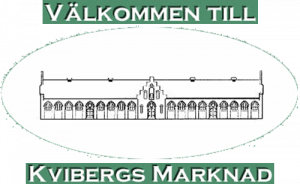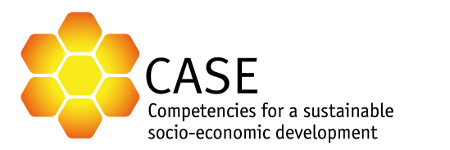 This project was developed within the course Social Innovation and Entrepreneurship (Master of Science in Knowledge-based Entrepreneurship) at the Department of Economy and Society, University of Gothenburg in the context of the Culture House Kviberg. This institution is a non-profit organization seeking to promote culture, intercultural meeting places and social enterprise in the Kviberg area in Gothenburg. The Kviberg market, offering a large variety of second-hand products and food, attracts between five to ten thousand visitors every weekend. At this meeting point, many languages are spoken; It a melting pot where social ties, culture and entrepreneurship develop in a single location. The Culture House Kviberg wants to establish an alternative cultural meeting place, a Culture Café, in cooperation with the vendors and visitors of the market as well as local associations and cultural groups, which seemed an interesting case for the students to contribute with solution that potentially can develop the whole district. The idea was that the Culture Café should host an art center and organize cultural events as well as lectures to foster social sustainability in the area and greater town. Artists, associations and speakers from different backgrounds, lacking an own platform, then get the chance to reach out to a larger public. Those working at the Café have the possibility to be a partner and engage in the creation and running of the Café.
This project was developed within the course Social Innovation and Entrepreneurship (Master of Science in Knowledge-based Entrepreneurship) at the Department of Economy and Society, University of Gothenburg in the context of the Culture House Kviberg. This institution is a non-profit organization seeking to promote culture, intercultural meeting places and social enterprise in the Kviberg area in Gothenburg. The Kviberg market, offering a large variety of second-hand products and food, attracts between five to ten thousand visitors every weekend. At this meeting point, many languages are spoken; It a melting pot where social ties, culture and entrepreneurship develop in a single location. The Culture House Kviberg wants to establish an alternative cultural meeting place, a Culture Café, in cooperation with the vendors and visitors of the market as well as local associations and cultural groups, which seemed an interesting case for the students to contribute with solution that potentially can develop the whole district. The idea was that the Culture Café should host an art center and organize cultural events as well as lectures to foster social sustainability in the area and greater town. Artists, associations and speakers from different backgrounds, lacking an own platform, then get the chance to reach out to a larger public. Those working at the Café have the possibility to be a partner and engage in the creation and running of the Café.
The social issue addressed with the project is high unemployment in the area as well as segregation as a result of many different backgrounds and nationalities. Students identified the entrepreneurial character of the Culture Café combined with the lack of knowledge about the financing of projects in the establishment stage as an opportunity for making a contribution. The Culture House Kviberg wants to solve social problems by creating a place that functions as a natural meeting point where different groups of immigrants can collaborate. By uniting, engaging and developing competence in people, even other problems, such as environmental ones, can be solved. The hope is to be able to develop a climate-neutral business environment. The students suggested solving the financing issue of the Culture House Kviberg by way of crowdsourcing and crowdfunding. Students investigated in detail how these solutions should be designed and what is needed to succeed, taking to their help experience from earlier successful cultural ventures in Gothenburg, both as a role model and for inspiration.

